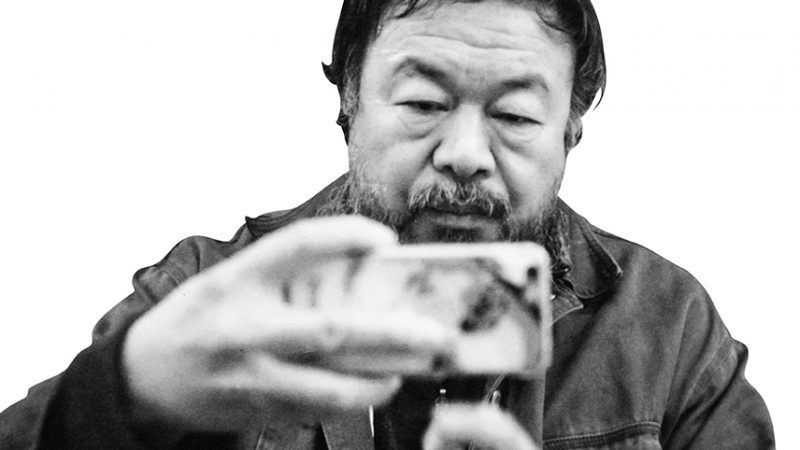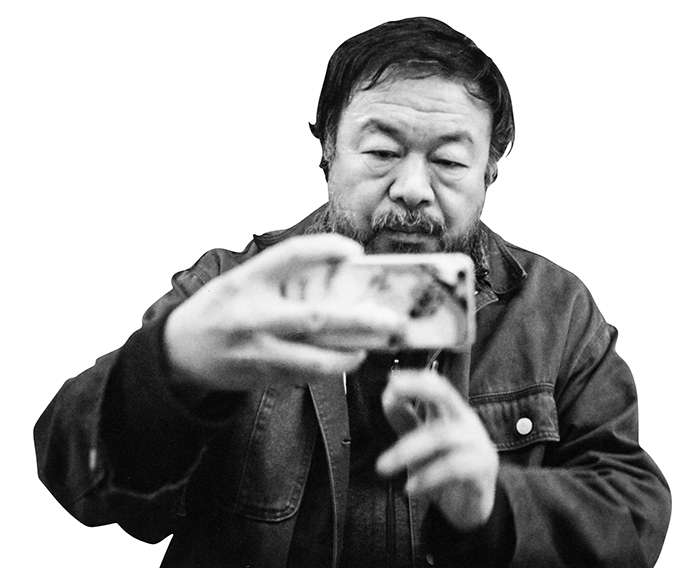Ai Weiwei Wants You to Think About the Refugee Crisis


Ai Weiwei may be the best-known artist alive today. Years of beatings, detention, and house arrest by the Chinese government only fueled his fame in the West. Now living in exile in Germany, he has shifted focus from repression in his homeland to the global refugee crisis. He's out with a new documentary on the subject, Human Flow, and has a major art show in New York called "Good Fences Make Good Neighbors." In October, he sat down with Reason's Meredith Bragg to discuss both projects.
Q: Your film weaves together the personal struggles of the individual with the enormous scale of the refugee situation.
A: You need a visual image which can cope with the totalness of the scale, which of course is almost not possible. Even the drone images we are using only can cope with one camp, and we only visited about 40 camps. In Germany alone there are 100 camps. If you talk about the Myanmar situation, that camp contains 420,000 people.
At the same time, they have all the individual stories—their faces, the little details of women cooking, or children running, or old men lighting up a cigarette. Those appearances really embrace humanity on a personal level. You can immediately sense what kind of people they are, and apprehend in their hearts what they have been through.
Q: I couldn't help but think about your own personal struggles with getting your passport back from the Chinese government. How do you view that document? Is it liberating, or is it state-sponsored restriction on movement?
A: It's crazy. My passport was in the possession of the Chinese government for years. By refusing to let me have the passport, they limited my freedom to travel. As an artist I would have shows in worldwide institutions I could not attend. They were trying to reduce my voice or my possibility for creativity. A passport should be part of an individual identity. The government only has the right to provide you that identity—that's the basic dignity a nation should give to any citizen. But many, many nations, especially totalitarian societies, use passports as a way to limit personal freedom. Many people cannot have passports in China. Some races, like the Tibetans, can never get a passport.
Q: The film will come out around the same time you're unveiling your new exhibit in New York. Is that just a coincidence?
A: It is a coincidence, because in film production you never have a clear timeline for when something will come out. But that can generate a lot of discussion, because my show is about territory, it's about borders, it's about immigration and how New York or the U.S. as a nation was made. And of course it has something to do with current [efforts] to limit people traveling here and to build a new border [wall] to limit immigration.
Q: Is this film pessimistic or optimistic?
A: This film provides a possibility for people to think about our own position in today's world. It can be both, because if you think all these tragedies are created by individuals, by humans, then we can stop it. But if we pretend this has nothing to do with us, this is very tragic—not only tragic to the refugees, but tragic to humanity, to our understanding about who we are and about what kind of future this society is going to get.
This interview has been condensed and edited for style and clarity. For a video version, visit reason.com.
This article originally appeared in print under the headline "Ai Weiwei Wants You to Think About the Refugee Crisis."


Show Comments (1)